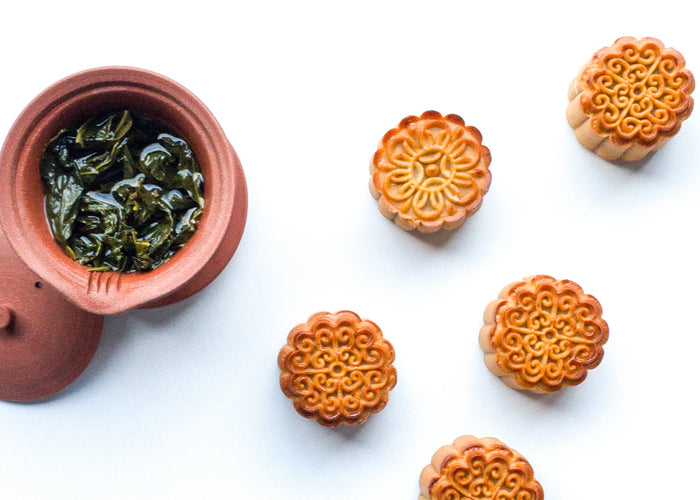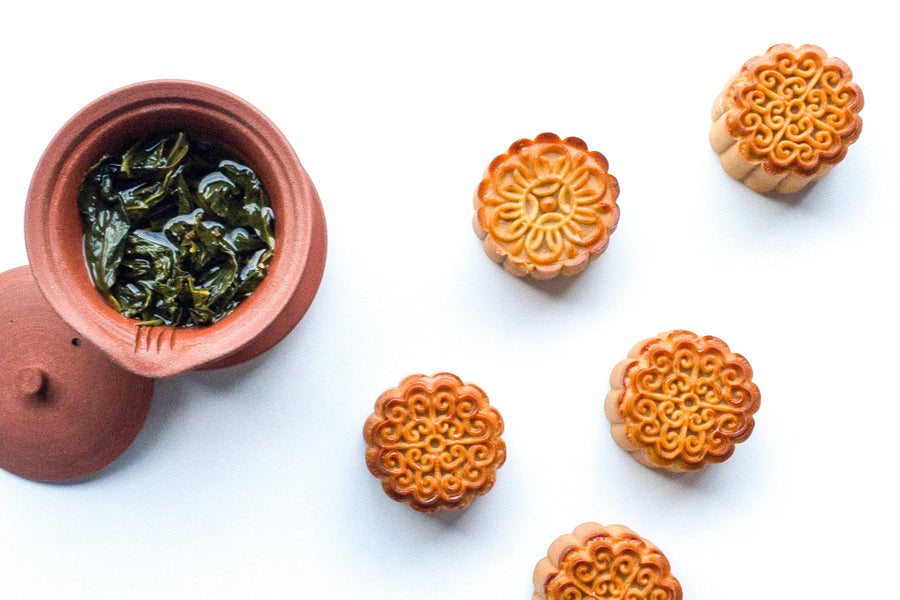Kyobancha 2024 No.323
low caffeine content
Region:
Yoshida tea garden
Uji, Japan
- Unit price
- /per
low caffeine content
Region:
Yoshida tea garden
Uji, Japan
Adding product to your cart
An excitingly versatile tea from the Yoshida Mei tea garden.
Its mild fruitiness is combined with and elegant, emberish ambiance. The fragrance is a nice mixture of freshly picked tobacco and roasted chestnut. With more and more infusions the teas fiery character becomes dominant, notes of pine and burnt wood appear. The aftertaste is quite long and surprisingly sweet.
The term ‘kyobancha (京番茶)’ originally referred to the banchas (late-harvested green teas) that were produced in Kyoto prefecture — hence the initial ‘Kyo’ character. However, by now this meaning has largely changed. It is a unique tea for numerous reasons and for this reason it is hard to squeeze it into any of the standard tea categories, such as white, green, oolong, black, dark or puer. Its most significant feature is the leaves’ size. Unlike most of the Japanese teas, Kyobancha is made of the bigger and older leaves instead of the younger ones. Another difference is the lack of rolling: after plucking, the leaves are immediately steamed, then sun-dried and finally slightly baked (sometimes it is referred to as Iribancha (いり番茶) that means roasted bancha). Due to the complex processing, the tea has an extremely low caffeine content; this is why it is called sometimes ‘Akachan Bancha’ (赤ちゃん番茶), which literally means ‘baby bancha’.
One of Uji’s ancient tea-gardens, the Kōzan-ji (高山寺) temple is tended by the Yoshida family for nearly 500 years. This degree of proficiency echoes in their teas too: refined and extremely balanced flavours supplemented with beautiful elegance.
This tea has a rich, warm aroma with subtle notes of coffee, sourdough bread and nutty breadcrumbs.
Steeped at 85°C for 2 minutes, the tea's character unfolds in the toastiness of hojicha and the sweet and sour harmony of wheat germ and dark chocolate.
The aroma is reminiscent of wild chestnut honey, with hints of cocoa and brioche. On the second infusion, the flavours shift to chocolatey Linzer and nutty notes, deepening the rich, dessert-like character of the tea. All in all, it has a pleasantly warming effect, ideal for cooler days or a quiet moment.
Quantity: 5 grams per 150ml
Water temperature: 85ºC. From fresh spring, mineral water or filtered water
Brewing time: 120 seconds
Infusions: 3-4 times
An excitingly versatile tea from the Yoshida Mei tea garden.
Its mild fruitiness is combined with and elegant, emberish ambiance. The fragrance is a nice mixture of freshly picked tobacco and roasted chestnut. With more and more infusions the teas fiery character becomes dominant, notes of pine and burnt wood appear. The aftertaste is quite long and surprisingly sweet.
The term ‘kyobancha (京番茶)’ originally referred to the banchas (late-harvested green teas) that were produced in Kyoto prefecture — hence the initial ‘Kyo’ character. However, by now this meaning has largely changed. It is a unique tea for numerous reasons and for this reason it is hard to squeeze it into any of the standard tea categories, such as white, green, oolong, black, dark or puer. Its most significant feature is the leaves’ size. Unlike most of the Japanese teas, Kyobancha is made of the bigger and older leaves instead of the younger ones. Another difference is the lack of rolling: after plucking, the leaves are immediately steamed, then sun-dried and finally slightly baked (sometimes it is referred to as Iribancha (いり番茶) that means roasted bancha). Due to the complex processing, the tea has an extremely low caffeine content; this is why it is called sometimes ‘Akachan Bancha’ (赤ちゃん番茶), which literally means ‘baby bancha’.
One of Uji’s ancient tea-gardens, the Kōzan-ji (高山寺) temple is tended by the Yoshida family for nearly 500 years. This degree of proficiency echoes in their teas too: refined and extremely balanced flavours supplemented with beautiful elegance.
This tea has a rich, warm aroma with subtle notes of coffee, sourdough bread and nutty breadcrumbs.
Steeped at 85°C for 2 minutes, the tea's character unfolds in the toastiness of hojicha and the sweet and sour harmony of wheat germ and dark chocolate.
The aroma is reminiscent of wild chestnut honey, with hints of cocoa and brioche. On the second infusion, the flavours shift to chocolatey Linzer and nutty notes, deepening the rich, dessert-like character of the tea. All in all, it has a pleasantly warming effect, ideal for cooler days or a quiet moment.
Quantity: 5 grams per 150ml
Water temperature: 85ºC. From fresh spring, mineral water or filtered water
Brewing time: 120 seconds
Infusions: 3-4 times











